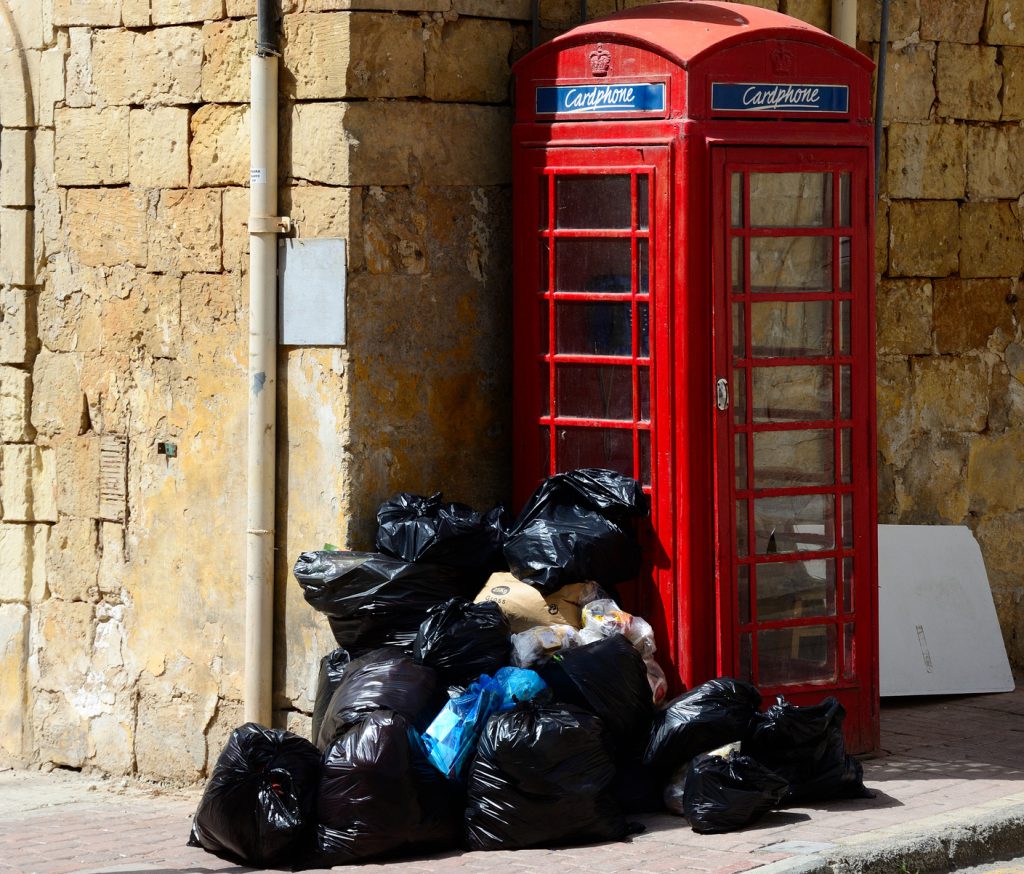A waste collection crisis

Weeks after the power cuts fiasco which was blamed on climate change, we are now experiencing the thrills and spills of a waste collection crisis which some are blaming on short-let accommodation.
It turns out that the social media platforms at the peak of summer are dominated by never-ending rants of law-abiding citizens who can take the current situation no more. Roaming the streets of certain localities, not only Sliema but other parts around the island, is reminiscent of the southern parts of Italy like Naples, where waste collection problems have become endemic. The dire situation was fully exposed not only in the media but also on social media with photos of rubbish heaps and the occasional rats feasting on their contents.
The roots of the ongoing crisis which if not resolved will have a significant negative economic impact especially on tourism, are several. However, the bottom line is that waste collection frequency has been decreased under the guise of a reform meant to increase recycling and promote domestic waste separation. Such step alone, is already a huge gamble as in the absence of proper planning and enforcement this is a recipe for disaster. The problem was compounded further by the sharp unplanned increase in population (100,000 in a just a decade) and the persistence on a tourism strategy based on numbers. Hence, the demographic changes and waste collection reform have contributed to a fine mess.
In certain areas, such as Sliema and St Julian’s the problem is being blamed on short-let apartments whereby tourists are flouting waste collection regulations. If for argument’s sake we assume this is the case, the situation is still unacceptable. What about beefing up enforcement and putting the onus on the owners of these properties to ensure that regulations are adhered to, be it by the tenants as well as the cleaners who more often than not leave the rubbish outside with complete impunity? What about imposing fines or introducing the practice of taking a deposit in case the tenants commit breaches?
Nonetheless, blaming the situation on short-let apartments seems to be a scapegoat as these types of accommodation have been there for decades. The only variables since last year are the waste collection schedules, which evidently are not meeting demand. This is a typical case of going from one extreme to another. Whereas before there were different schedules for each and every of the 68 councils across the Maltese Islands – making it almost impossible to follow the regulations – we have now gone to the extreme of adopting a one-size fits all. Furthermore, local councils have been stripped of their authority with the result that mayors have been left helpless and unable to take action whenever they get the stick from residents.
Looking ahead, this is yet another warning sign of the urgent need to go back to the drawing board in terms of our economic, social and environmental development. Unfortunately, it seems that even now that the writing is on the wall, there are some who are persisting in sticking their head in the sand.
